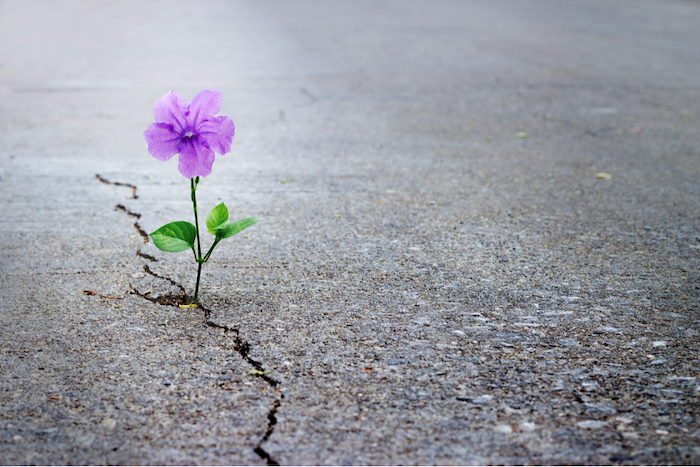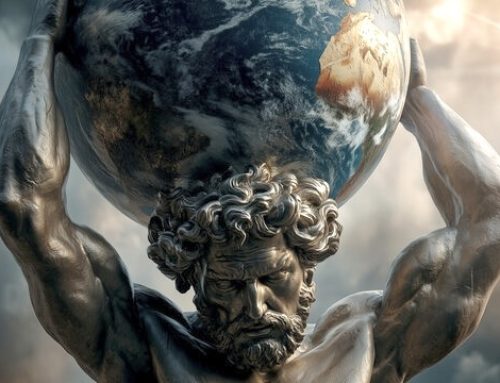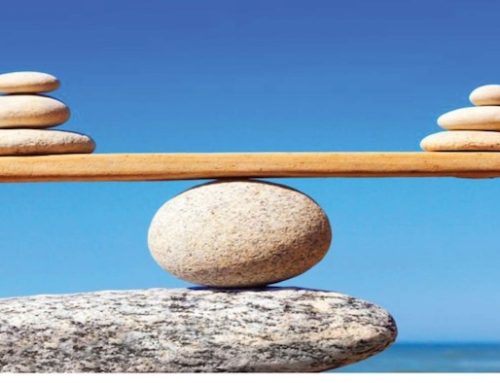Every so often in America we experience unsettling times. In my lifetime, I recall the late 1960s, late 1970s, and early 2000s as being spans of two to three years when there was decidedly more uncertainty in America than certainty. When political, economic, social, and/or security concerns left my head and heart troubled. Every day had an edge to it and, at times, it was unclear we would come through it. Occasionally existential dread, but mostly just a persistent low-level agitation that is both impossible to ignore and impossible to expel. It leaves your mind troubled and your stomach churning just enough to cause us to take a step back and place life on pause. Relief eventually arrives with little fanfare as, more often than not, life simply moves on thanks to the rule of impermanence: “this too shall pass.”
The Covid-19 pandemic glazed with the chaos of the Trump presidency qualifies, at least for me, as the fourth unsettling period during my lifetime. In my case, divorce and cancer added to the challenge. Yes, there was dread, but mostly just a daily grind that made both mornings and nights—which in the human experience should be joyful and reflective—marked by the stress of unknowns. It was during this recent period that I created my daily prayer: “May you wake in glory, enjoy your day with grace, and spend your night in peace.” Glory, grace, and peace. It makes a nice mantra, too. Not an excited state of joy, success, or happiness; rather, just a stable level of calm contentment. Calm as the new joy. That is enough for me.
Getting to the other side of these unsettled periods requires a level of grit and fortitude that are generally available to all humans, at least for a short period of time like two to three years. However, these periods offer a larger opportunity if we care to pay attention and do the work of building the deeper and wider capacity of durable resilience. A capacity that will serve us under any circumstances we face from unsettled periods to outright catastrophes. It may be because of my particular challenges that I have spent a great deal of time on this subject, but the truth is my challenges are not more profound than what you or your loved ones will endure—maybe even less. Frankly, it’s just life, and as the meme suggests: shit happens.
I have become convinced that the power of resilience is the most important capacity we can develop and maintain in our lives, but probably also the most difficult to understand, which makes its nurturing a lifelong challenge. It requires a mix of what to do as well as what not to do to succeed. Our resilience must be both strong and subtle in its deployment. Like a steel glove covered in soft velvet, it must do its job while not crossing the line into coercion—into doing further harm. We must learn to restore our equilibrium without creating any new disequilibria—for ourselves or others. Resilience requires an extraordinary sense of balance to keep us physically, mentally, and spiritually on an even keel. It is critical to our sense of tranquility that supports our capacity for equanimity. Without resilience, our suffering can cause permanent damage to ourselves and perhaps to others—often to the ones we love the most.
In Stephen Flynn’s book, The Edge of Disaster (2007), wherein he outlines all the threats facing the United States (at the time, mostly external), he offers us a definition of resilience based on Yossi Sheffi of the Massachusetts Institute of Technology’s rendering as: “the ability of a material to recover its original shape following a deformation.” Flynn goes on to suggest that the United States must be able to “match its strength to deliver a punch [coercive power] with the means to take one [resilient power]” which will make it “an unattractive target.”[1] His focus, and our national obsession at the time when the events of 9/11 remained a fresh source of fear, was on outside terrorists. Flynn provided a worthy analysis of how we might refocus our national resilience, but what about resilience at the level of the individual? This has become especially important as the threats in our lives have become more internal like domestic terrorists, the pandemic, and the many threats we perceive and experience from a deeply divided America.
There is actually quite a bit of scholarship out there on the subject of resilience. It tends to accelerate as a research interest during periods of crisis. Of the material I reviewed, I suggest Rick Hanson’s Resilient: How to Grow an Unshakeable Core of Calm, Strength, and Happiness (2018).[2] Hanson’s approach is to remain at all times thoughtfully aware; develop grit and confidence while practicing gratitude; know how to self-regulate your disposition depending on the circumstances; and, be courageous and generous while also being humbly aspirational. Hanson argues all of these factors will assure your safety, satisfaction, and connection to others, which are foundational for resilience. Makes sense, but it seemed to be missing some things that were less abstract and more practical. What follows here is more of a how-to approach.
In my view, developing and maintaining a deep and wide reservoir of resilience is possible in three steps of contemplative and practical work: know thyself, honor thyself, and steel thyself.
Know Thyself
Answering the question, “Who are you?”, is a fundamental requirement to determine the nature and identity of just who it is resilience is supposed to serve. Its importance is similar to the old requirement of strategic planning prompted by the axiom, “If you don’t know where you are going, any road will get you there.” In this case, if you don’t know who you are, serendipity may be your only shot at resilience. Aristotle viewed knowing thyself as a necessary foundation of life. “Know thyself” was, according to legend, also inscribed above the entrance to the temple of Apollo at Delphi, Greece.
Knowing thyself is largely a contemplative exercise that should be repeated and refreshed from time to time throughout your life. The ancient Greeks had a word for what Jesus would often do to refresh himself: eremos (air-ee-mose). He would disappear into the forest for contemplative solitude where followers believed he conferred with God. Who you are will and should change. Knowing thyself requires you to examine all the elements that define your identity—the descriptors in your unique and personal profile. How would you-describe-you in an honest, the many ways I am me, manner? You should identify your core beliefs (particularly as to values and virtues) and areas of knowledge that you have acquired through your experiences, education, indoctrinations, and socializations. Also, pay attention to what you inherited through your particular cultural and familial heritage. Don’t judge, just capture. This exercise is for you, alone. Avoid including the opinions/contributions of others. They tend to be generated through the lens of their own identity and, therefore, suffer from innocent corruption.
Next, perform a self-assessment of your strengths and weaknesses (which are important to have for step three: steel thyself). It is very important to know what you can leverage to your advantage and what you need to work on, or at least be aware of—like blindspots. One way to prompt yourself here is to simply list those things others rely upon you for (strengths) and what areas do you require help from others (weaknesses). Be kind to yourself here. Most of us (who are not afflicted by narcissism) are much more self-critical than is appropriate. Also, strengths and weaknesses are, by definition, things that are within our control—what an economist would call endogenous variables. Things out of our control are exogenous variables; more commonly called opportunities and threats. Deal with that which you can affect and accept the rest as it is.
Honor Thyself
You are a unique and glorious human being. You are so special there is actually not another person exactly like you in the entire 8.2 billion people in the world. Honor yourself as such. This second step, honor thyself, is probably the most often missed step in the process of building resilience. It can feel like a selfish exercise. But notwithstanding the spike in narcissism in the contemporary era, humans generally think of others as much as themselves; cooperation and service to others has been—throughout the history of humankind—key to our survival as a species and as individuals. To build personal resilience, you’ve got to allow yourself to be important, too. Grant yourself this permission. (This was my most difficult challenge in building my own resilience.) No, honoring yourself is not selfish. Get over that.
Honoring the self that you defined in step one includes respecting the values and the virtues you deem important. Consider these values and virtues as the vertebrae in your spine of character. Be true to them as best you can with the humble understanding you are still human and subject to irregular fealty. “The pursuit of happiness” found in our Declaration of Independence was intended by our founders to mean “happiness” as based in moral goodness. Further, it was intentionally described as a “pursuit” as in an ongoing journey and, therefore, in need of dutiful care, rather than a destination. Without integrity of virtues, Franklin, Adams, and Jefferson all argued, there could be no happiness. One might speculate this is why Trump is always angry. Pythagoras (born 580 BC in Greece), whom the founders often referenced, offered us the injunction to “reverence thyself” which included both self-awareness (knowing) and self-discipline (honoring), which brings us to step three: steeling thyself.[3]
Steel Thyself
That steel glove covered in soft velvet is achieved by tending to your body, mind, and spirit. Steeling requires the balance of hard, soft, and flexible. As you steel yourself, be mindful of the strengths and weaknesses you identified in step one.
Americans know a great deal about tending to the body, but not as much the mind and spirit. We all understand the value of diet, exercise, and sleep. There are many—way too many—products and services available in America to affect caring for our bodies. The challenge here is to make your way through that jungle to determine what works for you. Then, stick with your program. The general rule is that if you stand naked in front of a mirror and like what you see you are probably okay (setting aside the psychological distortions some people suffer as they interpret the image in the mirror). It is also recommended you tune into your body so you don’t miss messages it is trying to send to you. A consistent exercise regime is one way to develop this feedback loop inasmuch as the body under stress will behave differently when something is wrong (as long as you listen). Also, body-scan meditations are useful here.
I have found that the mind is best stimulated and maintained by a commitment to lifelong learning. Another mantra of mine (besides Glory, Grace & Peace) is to “Stay curious. Always curious.” Make the question mark (?) your icon worthy of veneration. To constantly challenge yourself to learn more in order to avoid what I call intellectual sclerosis, or a hardening of the mind. Remain open to new ideas and discoveries and embrace another rule of mine: every person I meet knows something I don’t know and can do something better than I can do it. Shut up and listen. Constantly challenge yourself to know more. Every day should include at least one new learning. Stick with it and you will become a very wise person. One more thing for the mind: live within your means in every sense of that word. Avoid burdensome obligations, troublesome dependencies, and unnecessary conflicts. When in doubt, discard.
Tending to the spirit, or what I call the soul, begins with affecting a healthy balance between the ego (largely defined in step one) and the soul. Left alone, the ego will dominate and often suffocate the soul. Mindfulness training achieved through contemplative and meditative practices is the best way I have found to nurture the soul. To remain in a state of open awareness, project a sense of calm authenticity, and enjoy a comfortable level of tranquility. I will further suggest that the ego is more important—should be granted more playing time—in early stages of life, but that balance should be flipped in the last quarter of one’s life. The ego that served you so well in the first three quarters can become your enemy in the last. There is a fork in the road around your mid-60s. Holding on tight to your ego puts you on a path of suffering while elevating the soul sends you on a path of transcendence. It is difficult to let go, but the big benefit is a state of peace and calm that—trust me—you will wonder why you waited so long to discover.
Knowing, honoring, and steeling is the best way to develop and maintain resilience. Pursued with diligence and discipline it will produce a resolute constitution that is unassailable. You will be that person that in the face of adversity has a curious grin on their face. You will know that you will always be okay and you will be much more valuable to those you care about. Yes, there is and will be suffering, but at the center of suffering the resilient find grace. In a world of unknowns and certain peril, you will not only survive, you will prosper. The “pursuit of happiness” will always be in your grasp. You will achieve a sense of dynamic enlightenment and pleasant liberation. You will rest in the hands of divinity.
What more could one want?
Finally, a note on the presidential election: The scene is now set. The light versus darkness. Inclusion versus exclusion. Elevation versus humiliation. Persuasion versus manipulation. As a presidential historian, I can predict how this ends. The optimism of F.D.R., Kennedy, Reagan, and Obama all prevailed. Only once in the contemporary era, in 2016, did darkness win when Trump’s “American carnage” won. Frankly, because the Clinton light was dimmed by her dismissive arrogance. In 2024, we need optimism more than ever. While many things could intervene to change the current course, Harris has captured the high ground of optimism, something Trump could never do. Because the only light he supports is the one shining on him.
[1] Stephen Flynn, The Edge of Disaster (New York: Random House, 2007), p. xxi.
[2] Rick Hanson, Resilient: How to Grow an Unshakeable Core of Calm, Strength, and Happiness (New York: Harmony Books, 2018).
[3] Jeffrey Rosen, The Pursuit of Happiness: How Classical Writers on Virtue Inspired the Lives of the Founders and Defined America (New York: Simon & Schuster, 2024), pp. 28-30.






